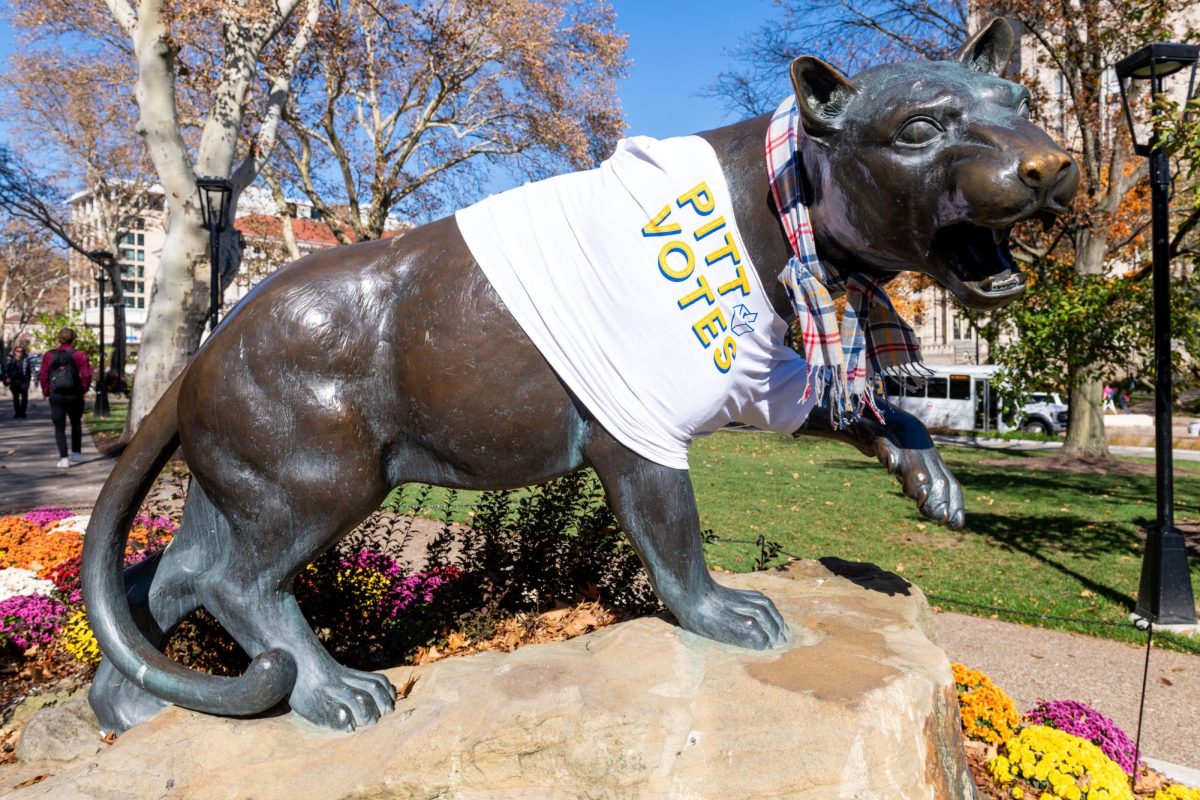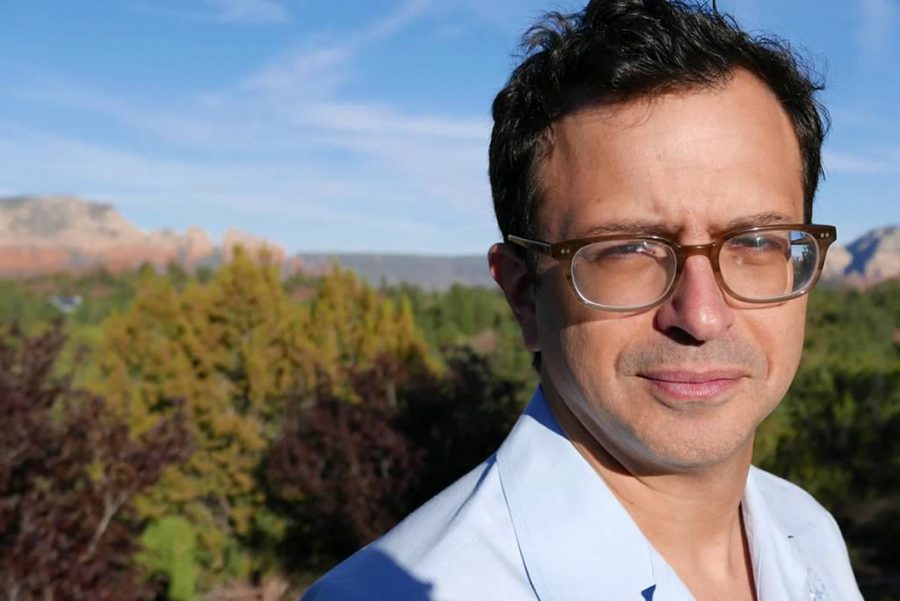There are three things in Daniel Borzutzky’s life that he keeps up with daily: taking his nine-year-old son to school, teaching classes and reading.
Though a writer by trade and nature, writing is not on his daily — or sometimes, even his weekly — to-do list.
Usually writing in spurts that last a couple of weeks at a time, it took Borzutzky — who is a Pitt alum and professor at Wilbur Wright College in Chicago — around three years to complete his book, “The Performance of Becoming Human.”
Borzutzky, 42, received the National Book Award for Poetry from the National Book Foundation for his November 2016 book “Performance,” the third installment in a series.
Borzutzky’s series focuses on “how we live with, observe and experience different types of violence at the level of our communities, at the level of our state and on an international level.”
Borzutzky said winning this award was an honor but also a surprise because his book is “a pretty angry one.” The award, according to Borzutzky, validates the impact of political art driven by anger.
Borzutzky’s work leaves a visceral impression, and always has, said his friend and fellow writer Amina Cain. Cain, who earned her MFA in creative writing alongside Borzutzky, wasn’t surprised by his newfound fame.
“Daniel is, I would say, in a category all on his own,” Cain said. “His work is shocking in all the best ways.”
In a timely fashion, “The Performance of Becoming Human,” Borzutzky shines light on the way society treats immigrants, specifically undocumented immigrants.
His style is light, almost carefree, but his topics are heavy.
“What do you make of this darkness that surrounds us?” Borzutzky writes. “They chopped up two dozen bodies last night and today I have to pick up my dry cleaning. / In the morning I need to assess student learning outcomes as part of an important administrative initiative to secure the nation’s future by providing degrees of economic value to the alienated, urban youth. / So for now hasta luego compadres and don’t worry too much about the bucket of murmuring sh*t that is the unitedstatesian night.”
Even the chapter titles are enough to make a reader tense up: “In the blazing cities of your rotten carcass mouth,” “The gross and borderless body,” “Eat nothing.”
Cain said Borzutzky’s work is gruesome because it allows the reader to feel and experience realities minorities face.
“I think reading his work is like taking the blinders off,” Cain said. “There’s very little to cushion the reader from the violence of the world.”
Though he looks the part of the intense writer — thick-rimmed glasses and ruffled brown hair — Borzutzky can more often be found reading than penning his own works.
“I think to be a writer is to be engaged with other people’s work,” Borzutzky said. “To be participating in a conversation with the writers that you care about and admire.”
Borzutzky has recently been reading poets César Vallejo and Gwendolyn Brooks. He also recently finished “The Underground Railroad” by Colson Whitehead, which, like Borzutzky’s book, received the National Book Award for Fiction.
Borzutzky strives to pass on his passion for reading to his students at Wilbur Wright College.
As much as Borzutzky inspires his students, he finds inspiration in them as well. One of the things he takes away from teaching classes is his students’ sense of commitment to and seriousness about their classwork. In addition to being students, many of them also have full-time jobs as well as families to take care of.
“The ability to go to school is not necessarily the top thing they’re able to focus on,” Borzutzky said. “It’s pretty inspiring to see them be committed to their work in pretty difficult circumstances.”
Although he is now quite an accomplished writer, Borzutzky didn’t study literature or writing while at Pitt. Despite his desire to be a writer from an early age, he majored in philosophy and didn’t start writing seriously until he was 23.
Because he didn’t study writing in college, Borzutzky didn’t have much access to mentors to inspire his writing. Instead, he was mostly influenced by simply reading. As a college student, one of Borzutzky’s favorite authors was James Baldwin, and he read all of his novels. Borzutzky recalls being changed by them.
It’s authors like Baldwin who help inspire Borzutzky, whose parents immigrated from Chile, to write about injustices, specifically those faced by minorities. He also draws insight from what he sees going on in his own city.
“The privatization in schools and other social services is very intense in Chicago,” Borzutzky said. “I’ve been thinking about the juxtaposition of the economic policies and the kind of brutal and racist policing policies in Chicago.”
Because of Borzutzky’s focus on divisive topics and injustices, Adam Novy — who attended graduate school with Borzutzky and Cain — said the experience of reading Borzutzky’s work can make people question their perspectives.
“I think that people who encounter his work may see their relationship with the world around them a little differently,” Novy said.
Borzutzky and Novy became friends after watching the 1998 World Cup together, and Novy added that Borzutzky is a great companion for baseball games. More than anything, Novy emphasized Borzutzky’s writing, which he described as funny, serious and challenging.
“[Borzutzky] kind of rearranges your expectations of things. He’s the most uncompromised writer that I know,” Novy said. “He really followed the advice of ‘just be yourself.’”
Continuing on his path of “being himself,” Borzutzky recently completed another book of poetry, although he is unsure when it will be published or what he’ll do after that. For now, he plans to continue inspiring his students and reminding them that putting in the effort is the most important part of writing.
“If you’re willing to commit to working really hard, then I don’t think there’s any innate talent that people need to be writers,” Borzutzky said. “I think that it’s about working really hard, reading a ton and being dedicated to it.”
Read more about Daniel Borzutzky here.



